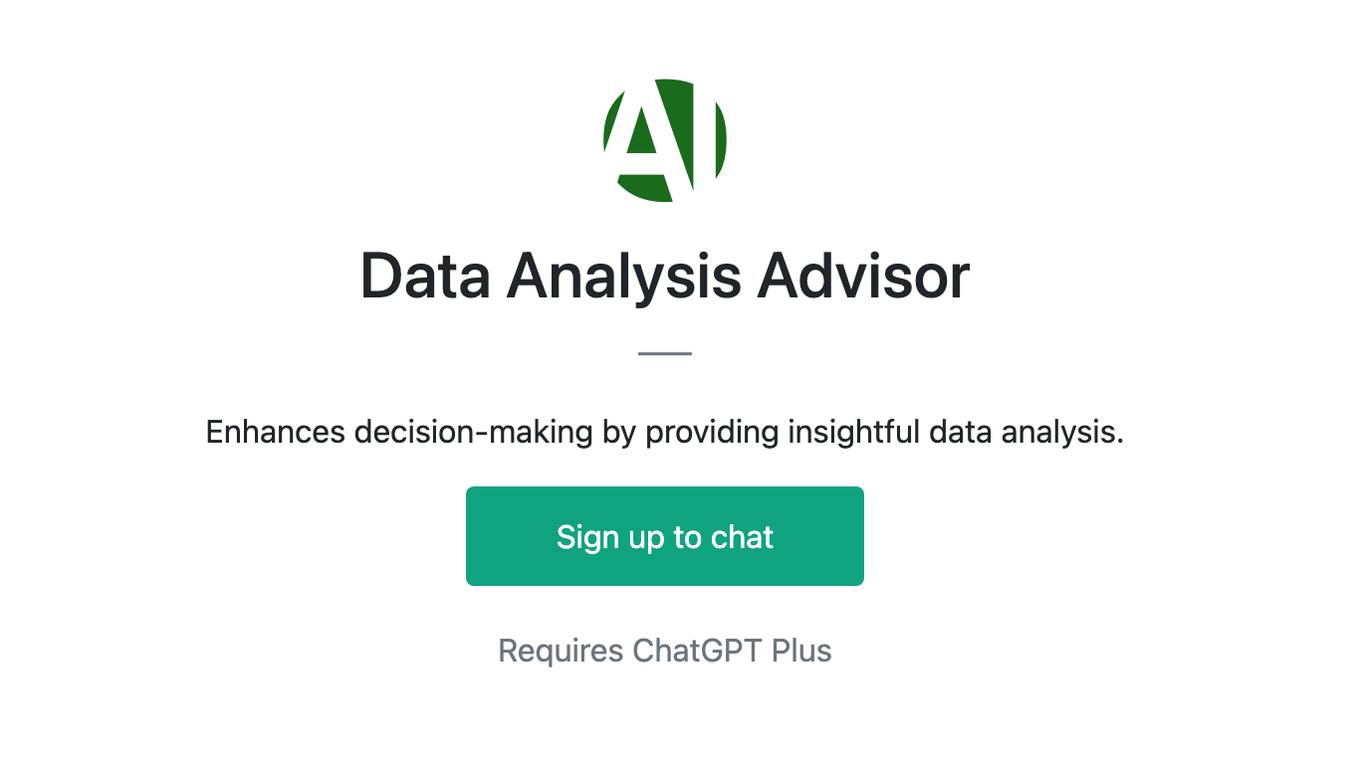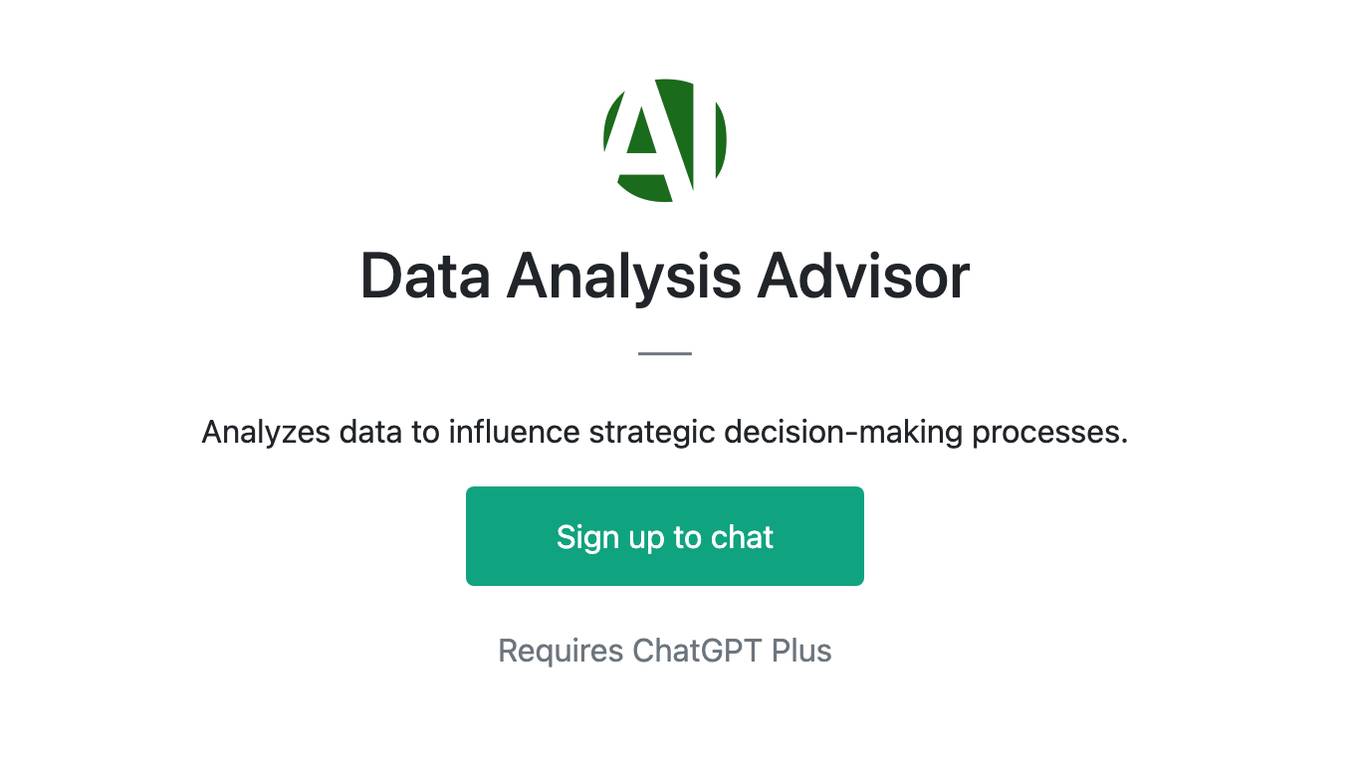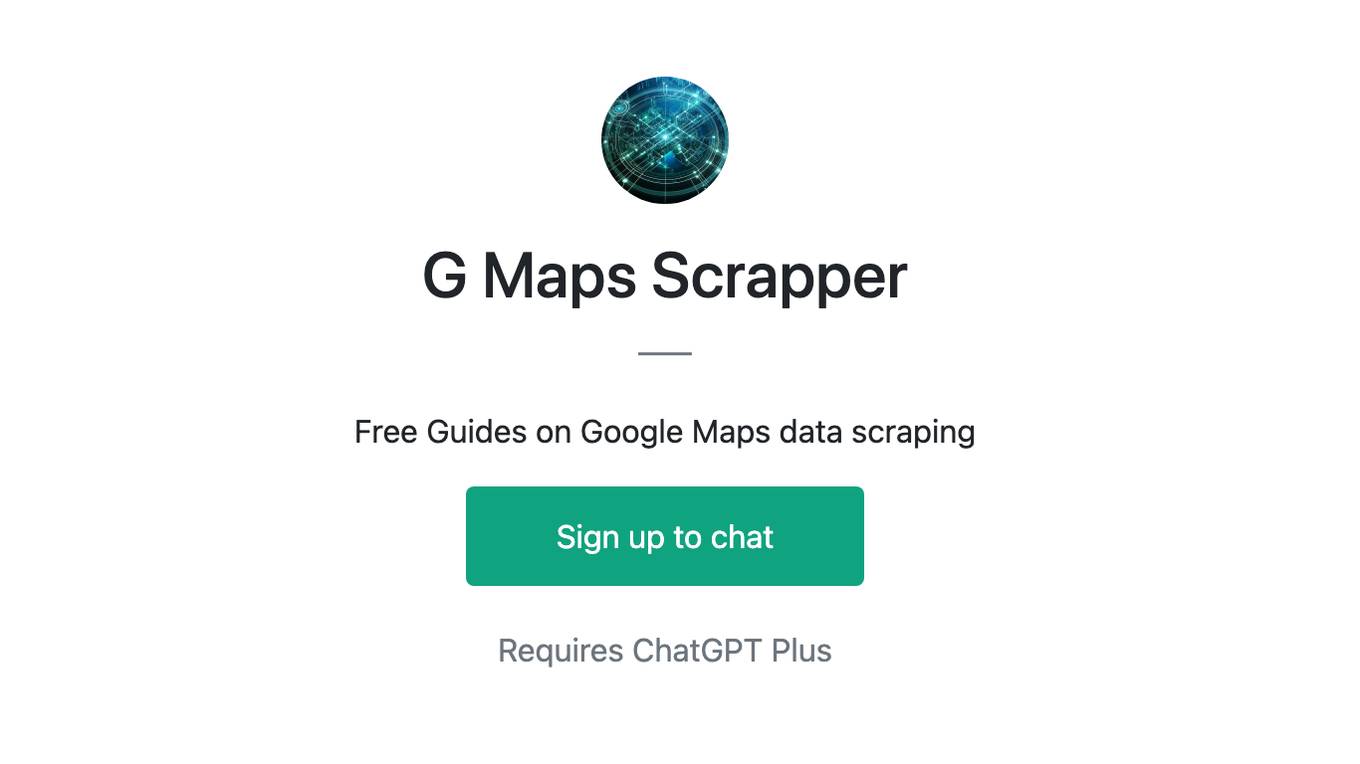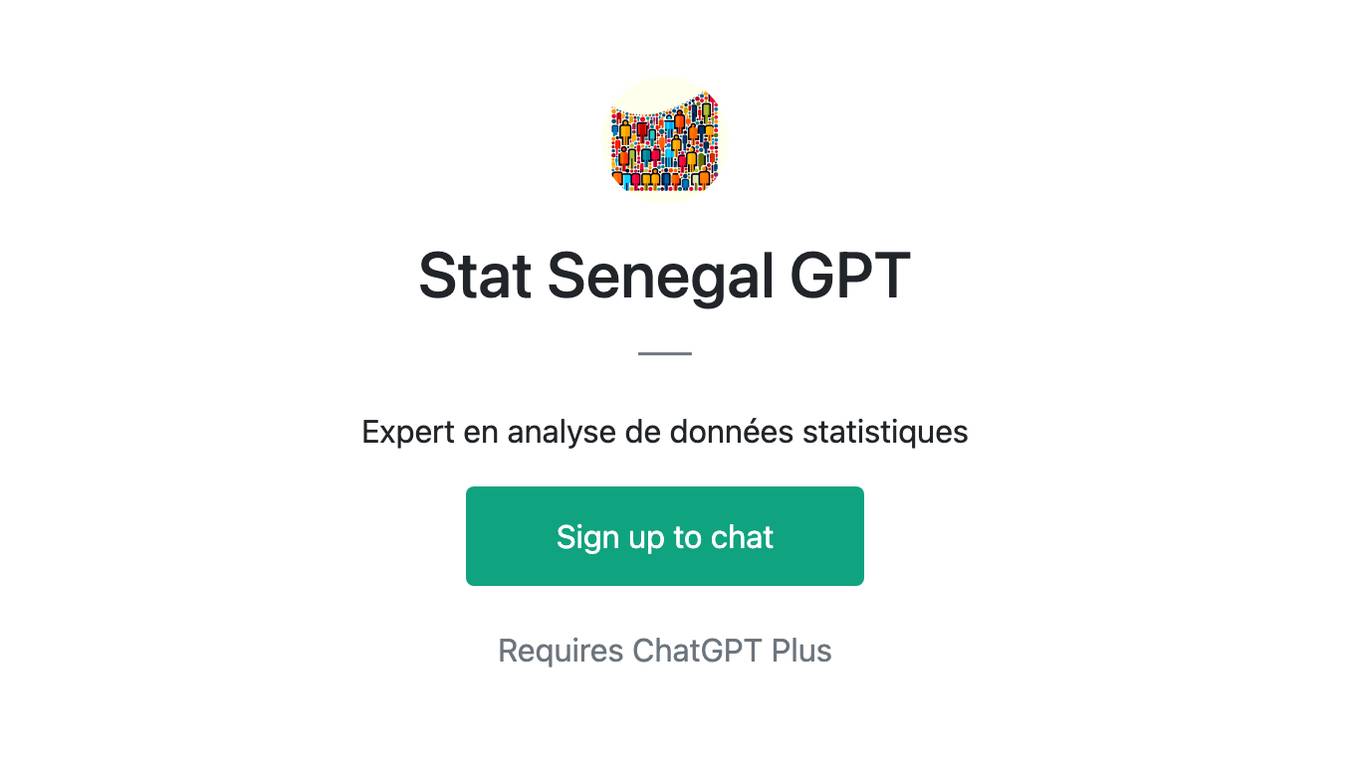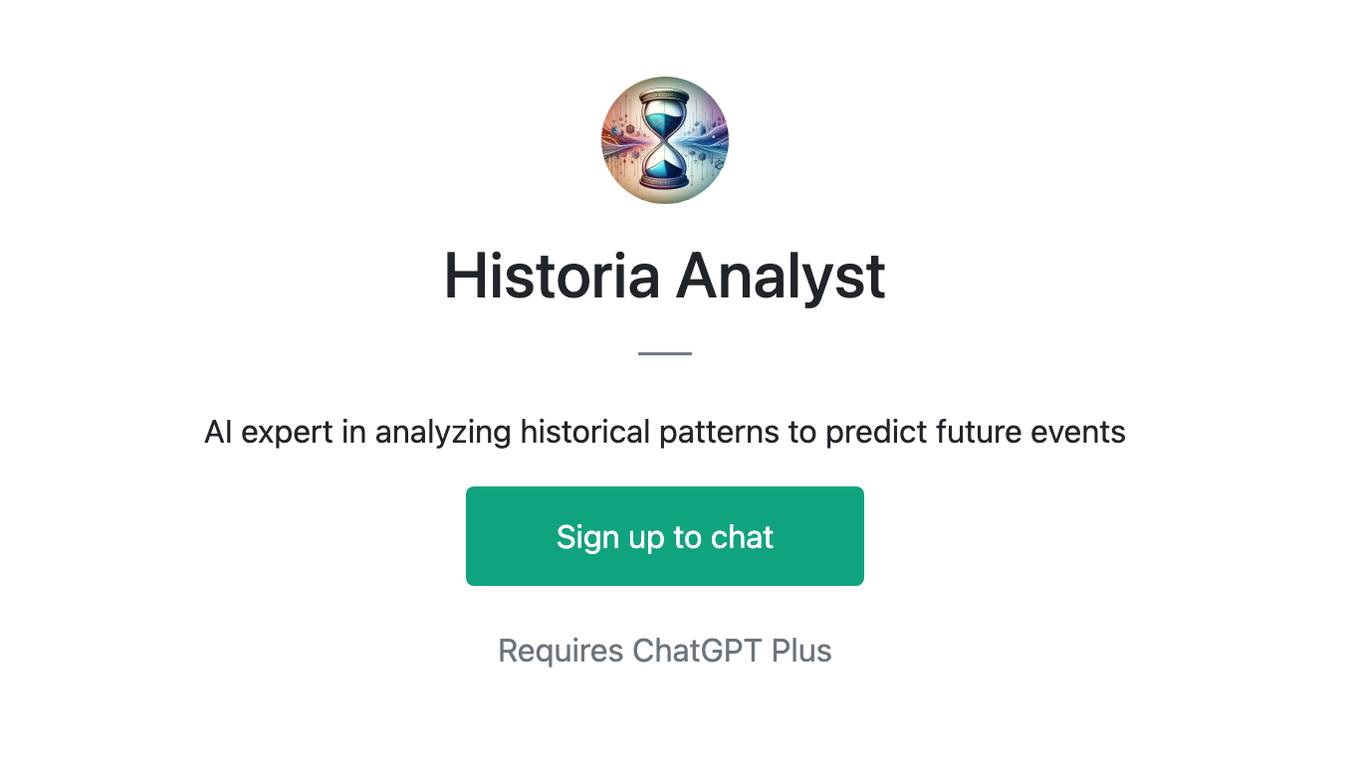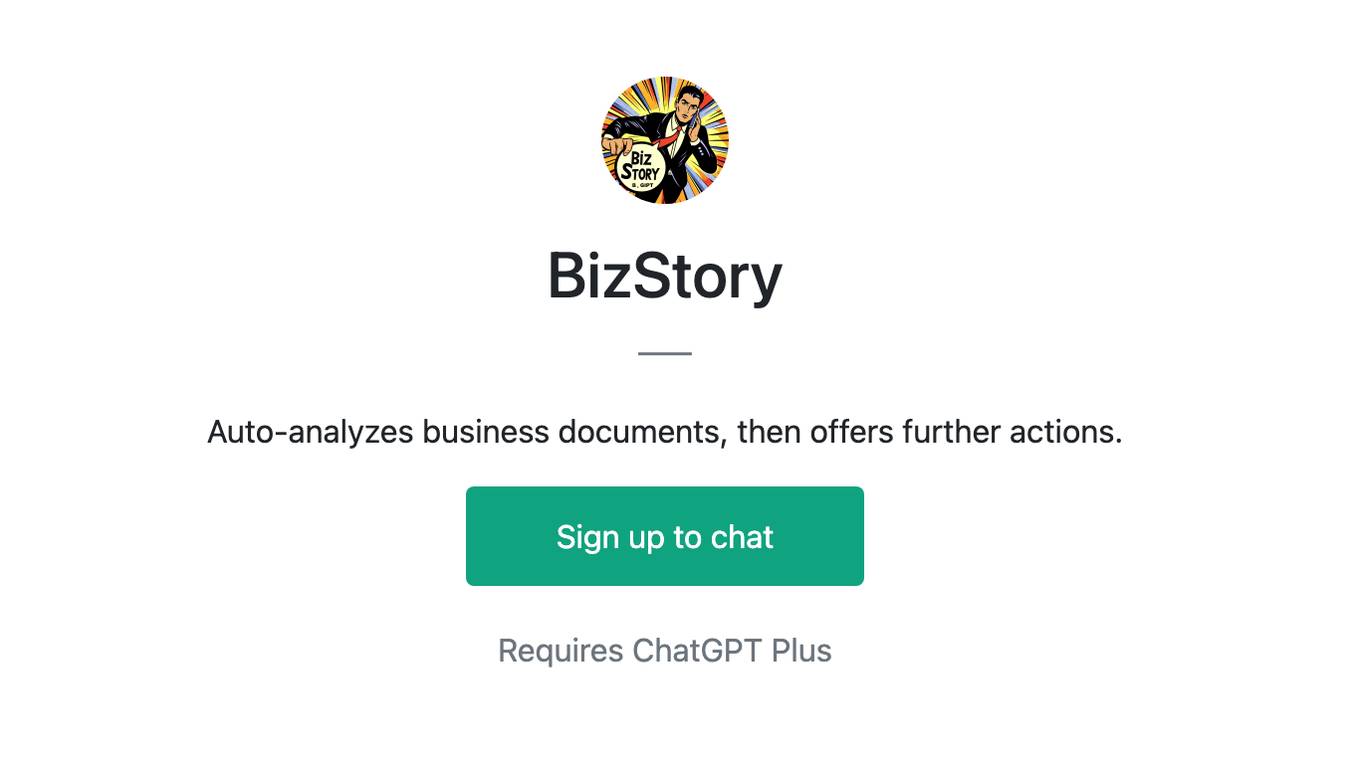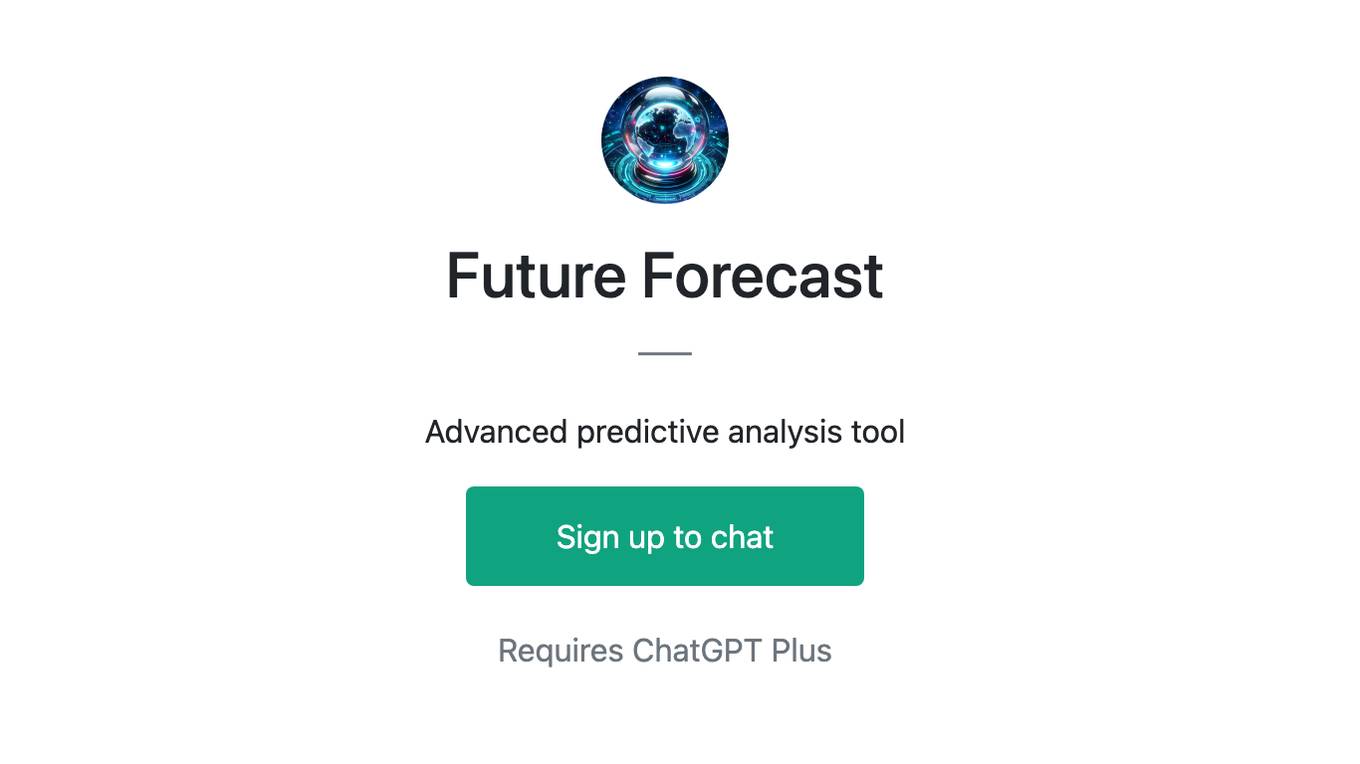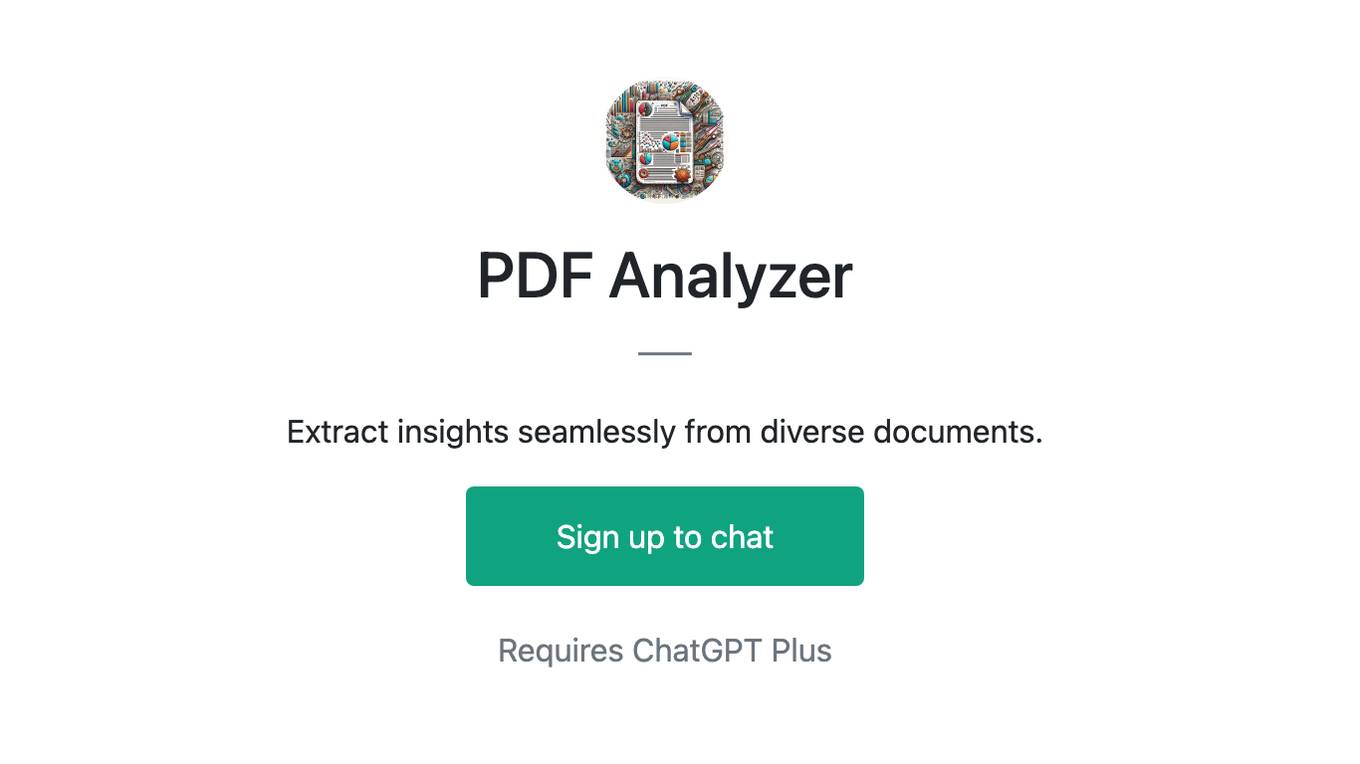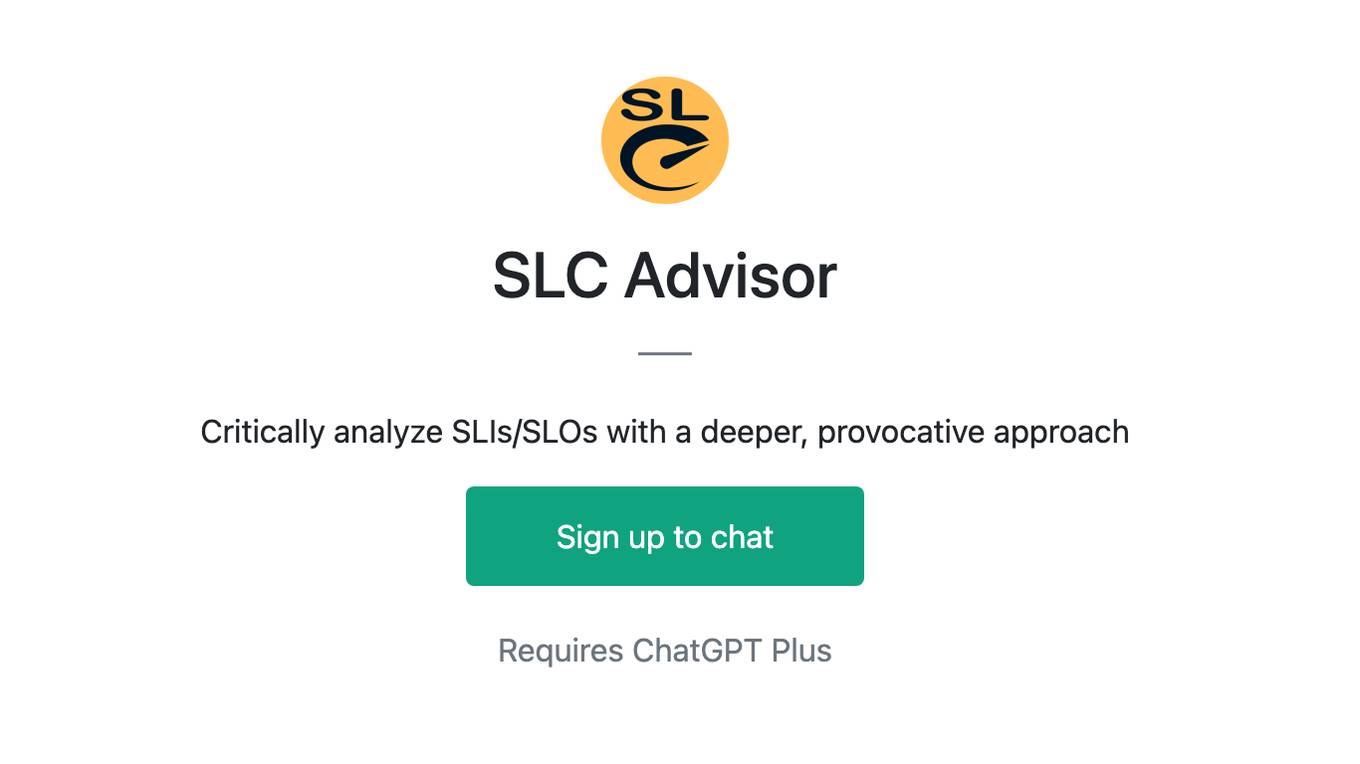Best AI tools for< Analyze Mining Data >
20 - AI tool Sites

Data Hivemind
Data Hivemind is a company that provides automation services to businesses. They help businesses automate tasks such as lead generation, project management, recruiting, and CRM setup. Data Hivemind uses a variety of tools to automate tasks, including Zapier, Make.Com, Alteryx, N8N, Python, and others. They also offer a variety of services, including onboarding, weekly consultations, and documentation with every project.
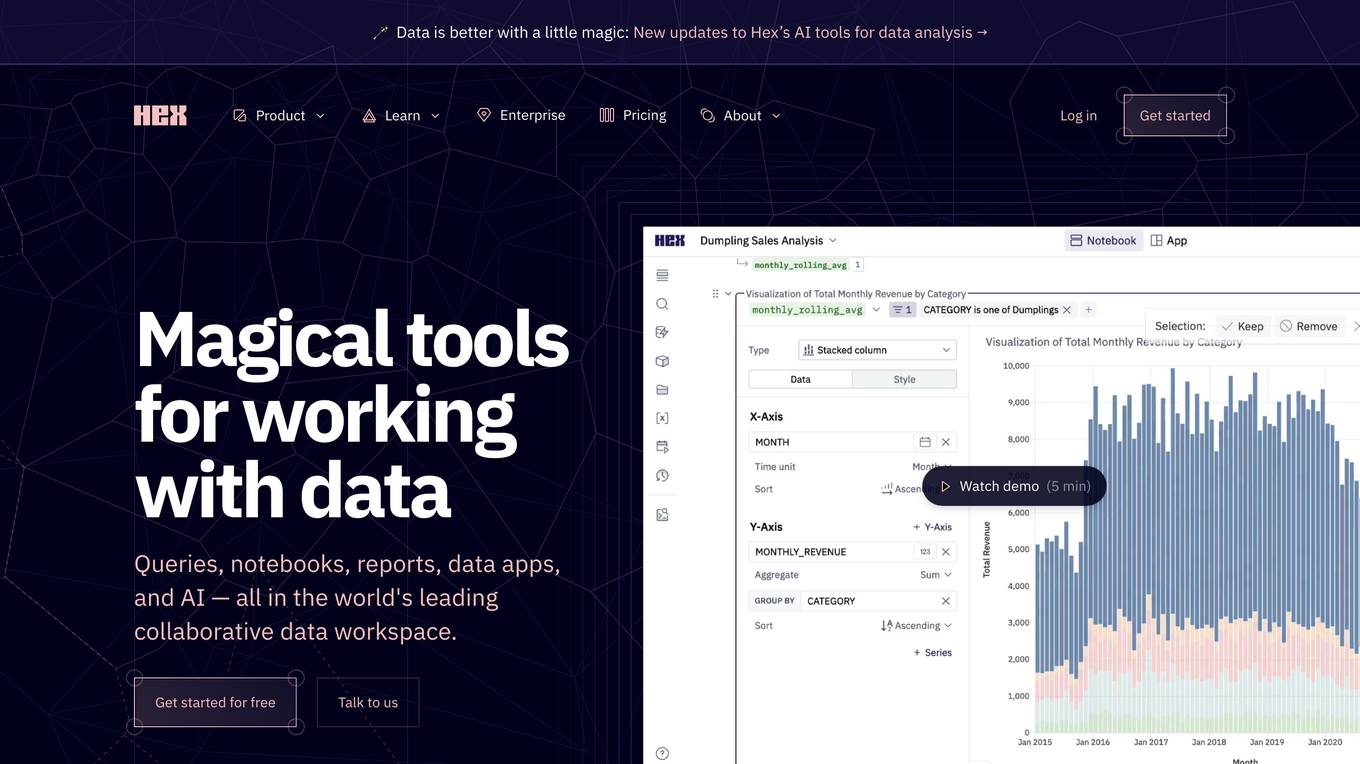
Hex
Hex is a collaborative data workspace that provides a variety of tools for working with data, including queries, notebooks, reports, data apps, and AI. It is designed to be easy to use for people of all technical skill levels, and it integrates with a variety of other tools and services. Hex is a powerful tool for data exploration, analysis, and visualization.

Komodo Health
Komodo Health is a healthcare technology company that provides software applications to enable users to deliver exceptional value to their customers, colleagues, and patients. The company's Healthcare Map is the industry's most precise view of the U.S. healthcare system, and it combines the world's most comprehensive view of patient-encounters with innovative algorithms and decades of clinical expertise. Komodo Health's software applications are used by life sciences companies, payers, providers, and consultancies to improve the certainty of pre-launch plans, calculate Rx-based ROI for digital marketing, find patients with complicated or rare conditions, and more.

Extractify.co
Extractify.co is a website that offers a variety of tools and services for extracting information from different sources. The platform provides users with the ability to extract data from websites, documents, and other sources in a quick and efficient manner. With a user-friendly interface, Extractify.co aims to simplify the process of data extraction for individuals and businesses alike. Whether you need to extract text, images, or other types of data, Extractify.co has the tools to help you get the job done. The platform is designed to be intuitive and easy to use, making it accessible to users of all skill levels.
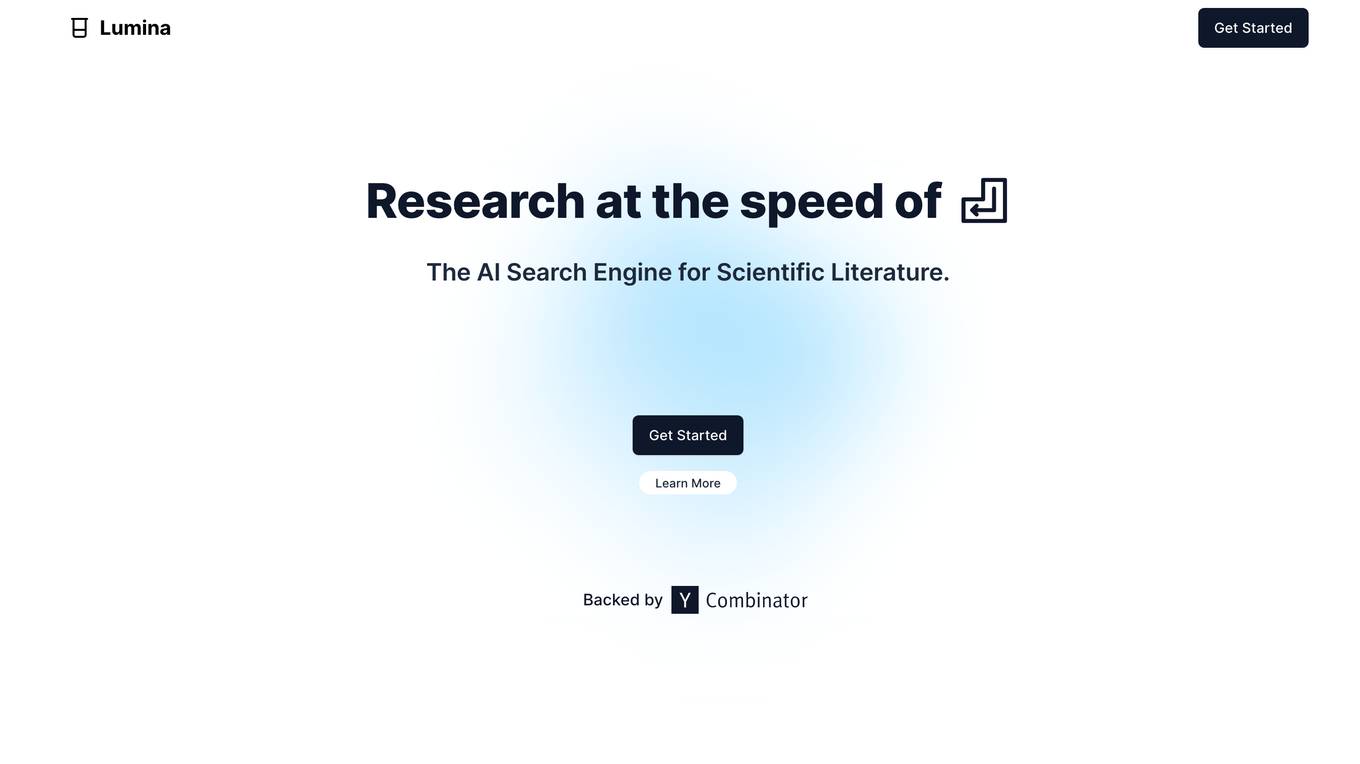
Lumina
Lumina is a research tool that uses artificial intelligence to help researchers find and analyze information more quickly and easily. It can be used to search for articles, books, and other resources, and it can also be used to analyze data and create visualizations. Lumina is designed to make research more efficient and productive.

Bodify
Bodify is a predictive analytics platform that helps online retailers improve the shopping experience for their customers. By using AI to analyze customer data, Bodify can provide retailers with insights into what products customers are most likely to purchase, what sizes and styles they prefer, and what factors influence their decisions. This information can then be used to create more personalized and relevant shopping experiences, which can lead to higher conversion rates, increased customer loyalty, and improved bottom-line results.
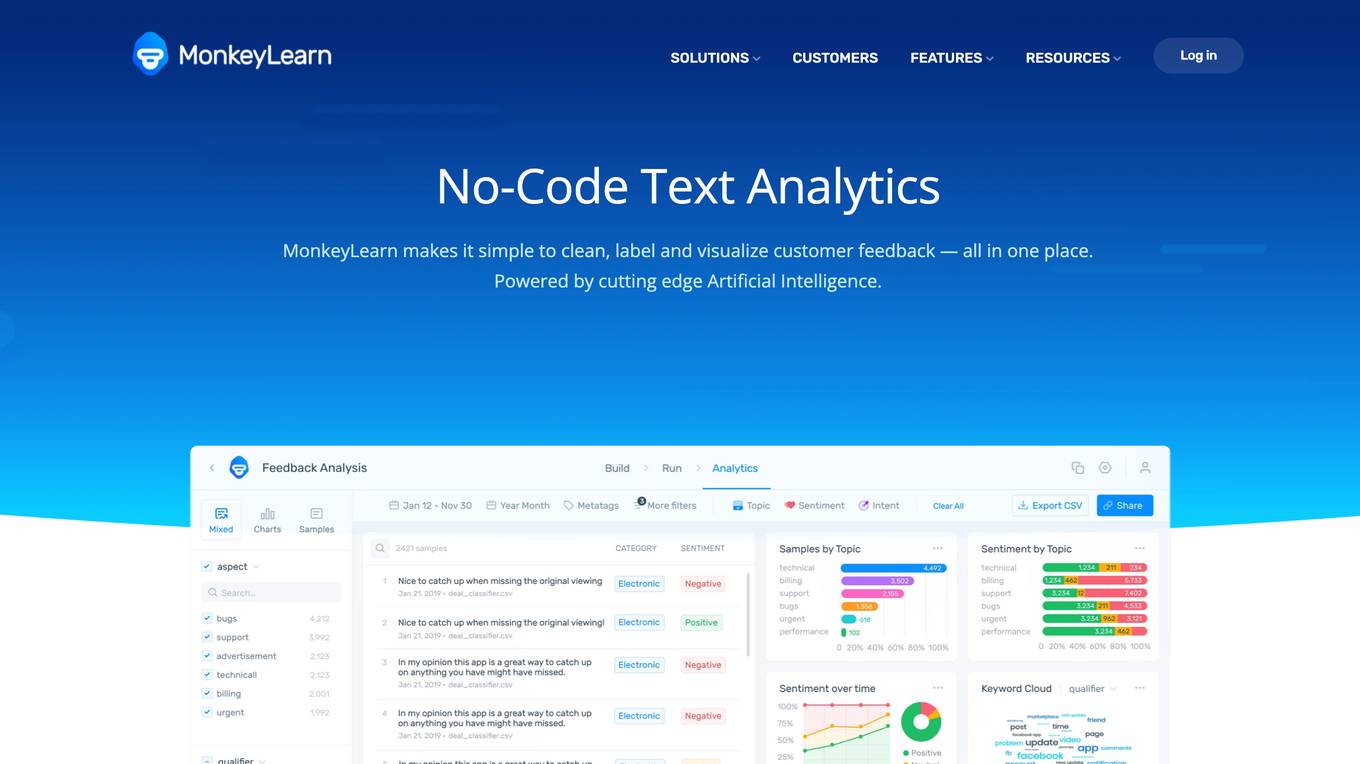
Medallia
Medallia is a real-time text analytics software that offers comprehensive feedback capture, role-based reporting, AI and analytics capabilities, integrations, pricing flexibility, enterprise-grade security, and solutions for customer experience, employee experience, contact center, and market research. It provides omnichannel text analytics powered by AI to uncover high-impact insights and enable users to identify emerging trends and key insights at scale. Medallia's text analytics platform supports workflows, event analytics, real-time actions, natural language understanding, out-of-the-box topic models, customizable KPIs, and omnichannel analytics for various industries.

Syntheda
Syntheda is an AI-driven news platform focusing on African news and developments. It provides articles written by both AI and human authors, covering a wide range of topics such as finance, economy, technology, politics, mining, and energy. The platform aims to deliver timely and insightful news content to its readers, highlighting key events and trends shaping the African continent.
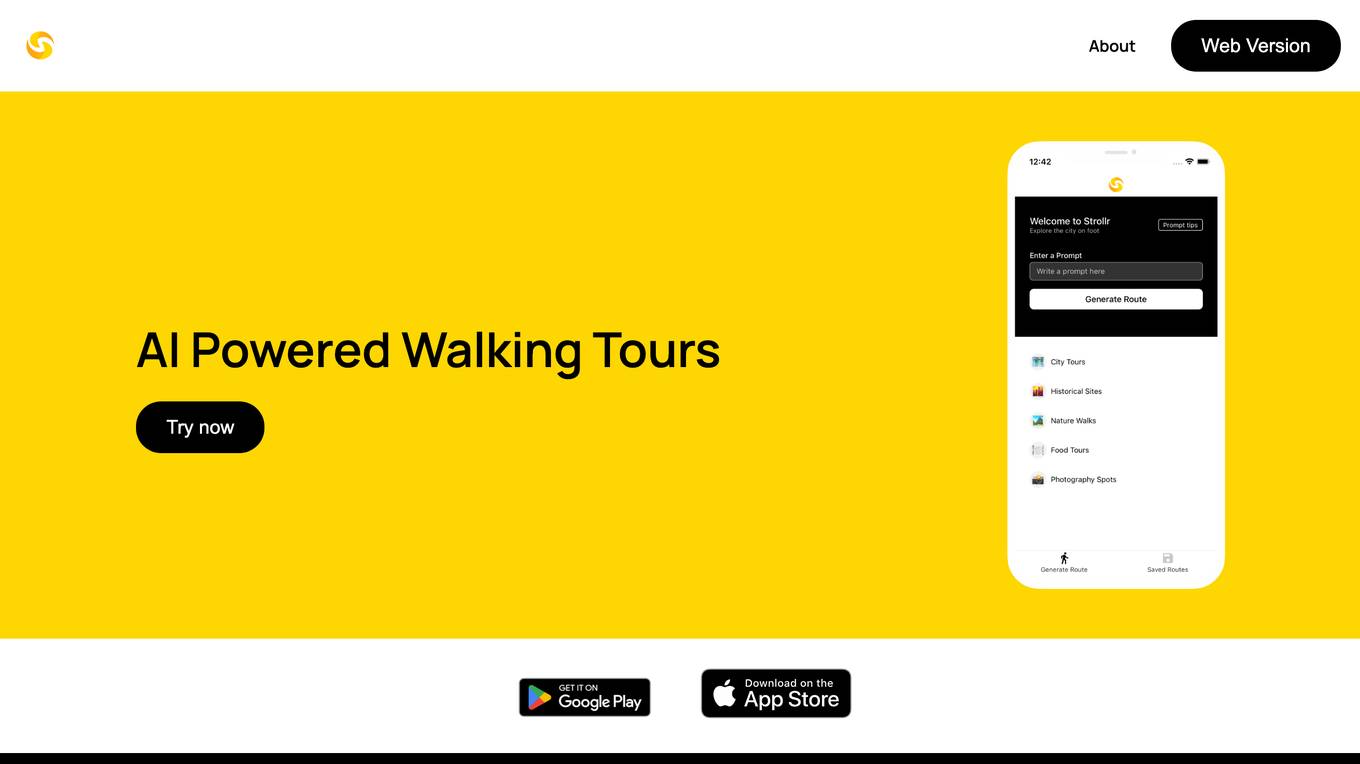
Selvio Quant
Selvio Quant is a premier investment education platform with AI in São Paulo. It offers a fast and secure way to invest in cryptocurrencies, trusted by 10 million wallets with over $30 billion in transactions. The platform provides tools for buying and selling cryptocurrencies, checking hash rates, mining Ethereum, Litecoin, and Bitcoin, analyzing market sentiments and portfolios, and tracking investments. Users can access detailed statistics, trade securely, and make informed decisions. Selvio Quant aims to revolutionize cryptocurrency trading by eliminating financial borders, extra fees, and fake reviews.

Intangles
Intangles is an advanced fleet management and predictive analytics platform powered by AI technology. It offers a suite of solutions designed to optimize fleet operations, improve vehicle health monitoring, enhance driving behavior, track fuel consumption, automate operations, and provide accurate predictive analytics. Intangles caters to various industries such as trucking, construction, mining, farming, oil & gas, transit, marine engines, gensets, and waste management. The platform leverages state-of-the-art technology including Digital Twin Technology, Integrated Solution, and Predictive Analytics to deliver outstanding results. Intangles' mission is to spark a technology revolution in the mobility industry by helping businesses save time and money through predictive maintenance and real-time data insights.
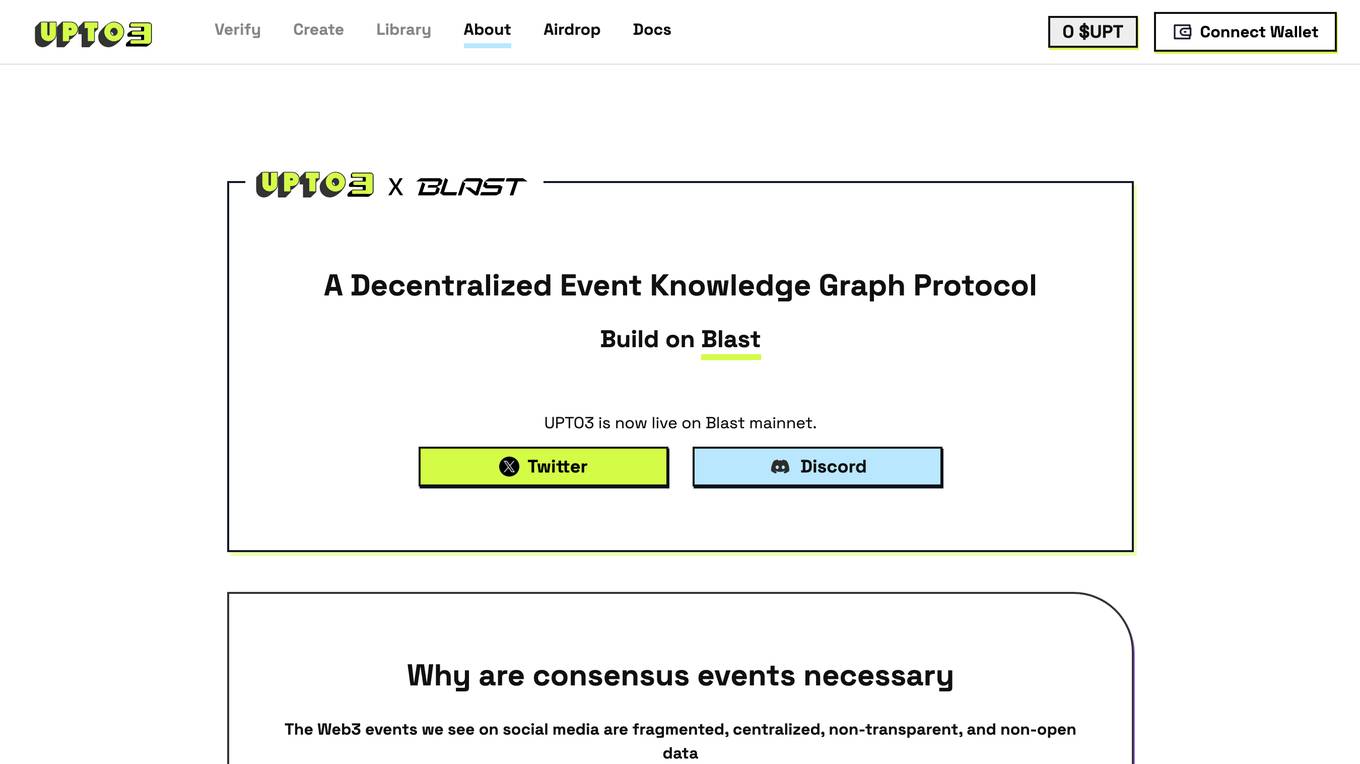
UPTO3
UPTO3 is a decentralized event knowledge graph protocol that aims to provide consensus verification for Web3 events by turning them into NFTs. It allows users to mint and verify events, with rewards based on the results. The platform promotes transparency, open data, and unbiased analysis through economic incentives. UPTO3 will be built on Blast(L2) and offers features such as event minting as NFTs, permissionless access, and decentralized validation tasks.

Moning
Moning is a platform designed to help users manage and boost their wealth easily. It provides tools for a global view of wealth, making better investment decisions, avoiding costly mistakes, and increasing performance. With features like AI Analysis, Dividends calendar, and Dividend and Growth Safety Scores, Moning offers a mix of Human & Artificial Intelligence to enhance investment knowledge and decision-making. Users can track and manage their wealth through a comprehensive dashboard, access detailed information on stocks, ETFs, and cryptos, and benefit from quick screeners to find the best investment opportunities.
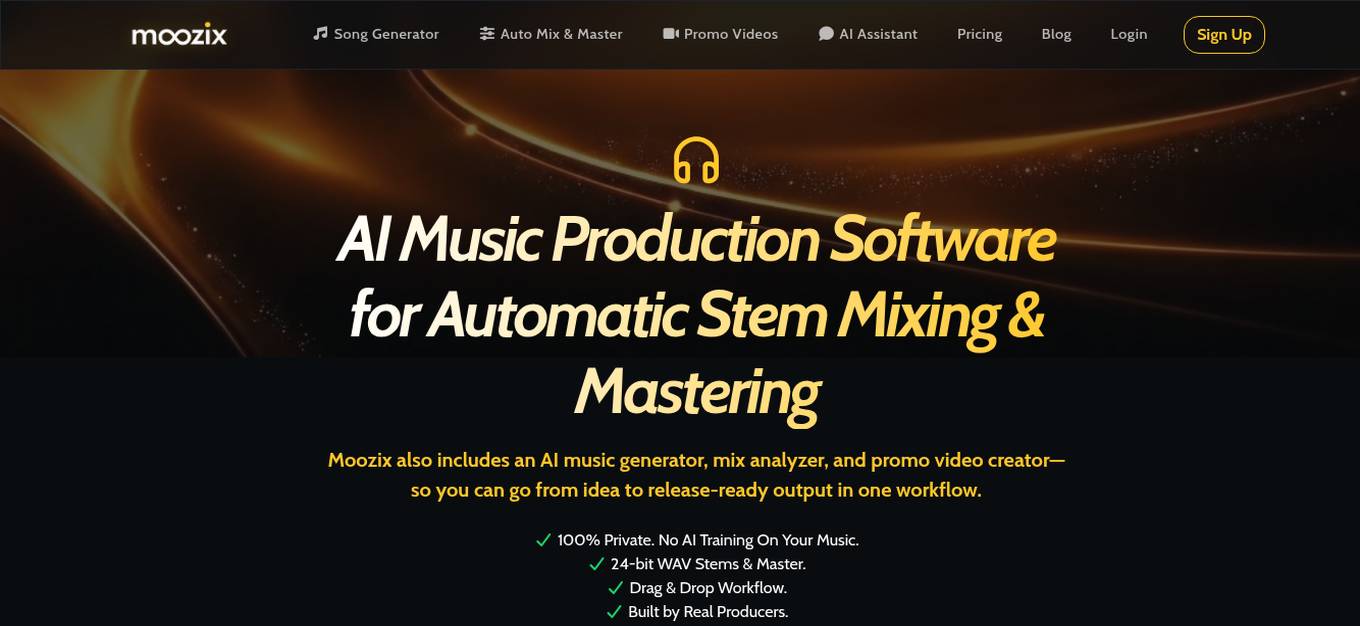
Moozix
Moozix is an AI music production software suite that offers automatic stem mixing, AI mastering, song generation, mix analysis, and promo video creation. It provides a high-fidelity ecosystem for creators to go from idea to release-ready output in one workflow. Moozix allows users to upload stems and reference tracks for AI analysis and mixing, generate full-fidelity tracks based on mood or genre descriptions, apply professional mastering characteristics to projects, receive creative feedback from an AI assistant, and create high-impact promo videos for social media. The tool also offers deep stem separation mixing, lyric generation, and intelligent studio assistance for music production without the need for a physical studio. Moozix is designed to help musicians and songwriters enhance their music production process with AI-powered features and tools.
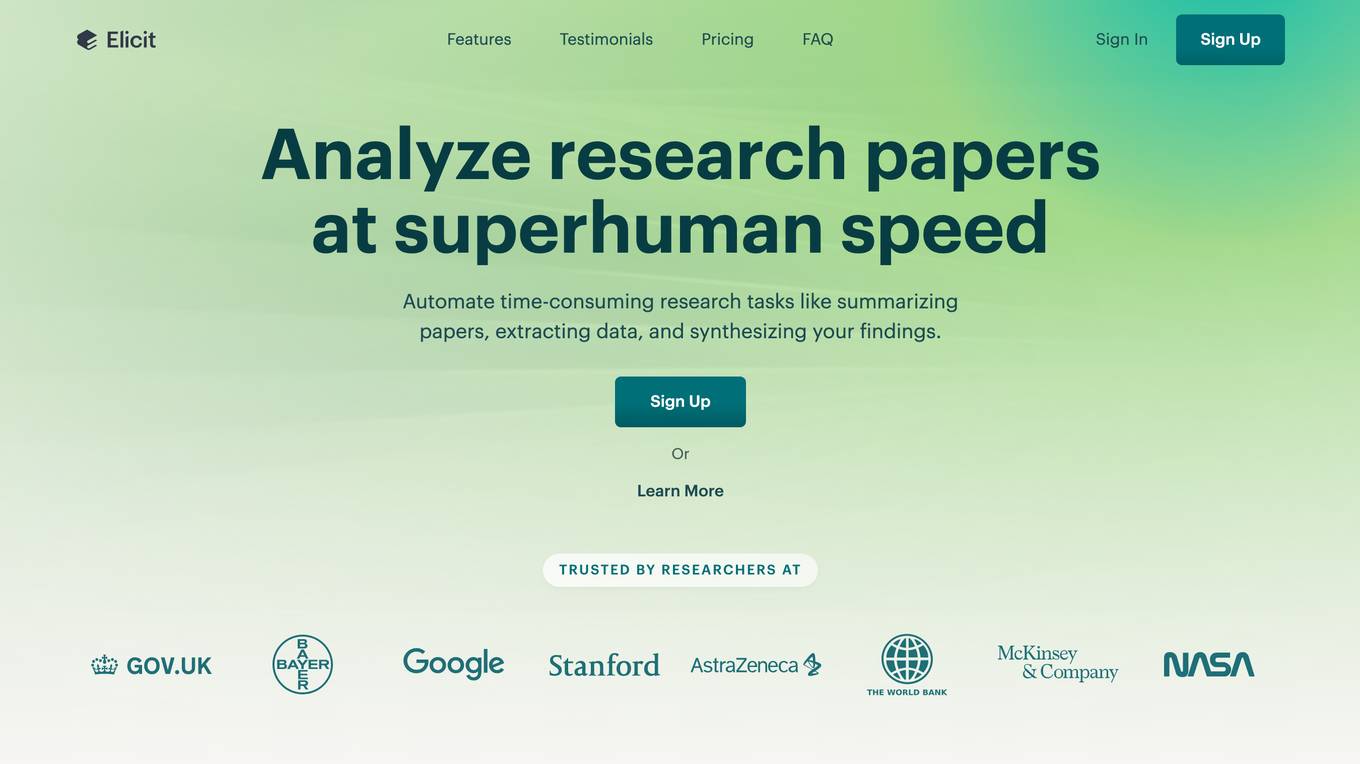
Elicit
Elicit is a research tool that uses artificial intelligence to help researchers analyze research papers more efficiently. It can summarize papers, extract data, and synthesize findings, saving researchers time and effort. Elicit is used by over 800,000 researchers worldwide and has been featured in publications such as Nature and Science. It is a powerful tool that can help researchers stay up-to-date on the latest research and make new discoveries.
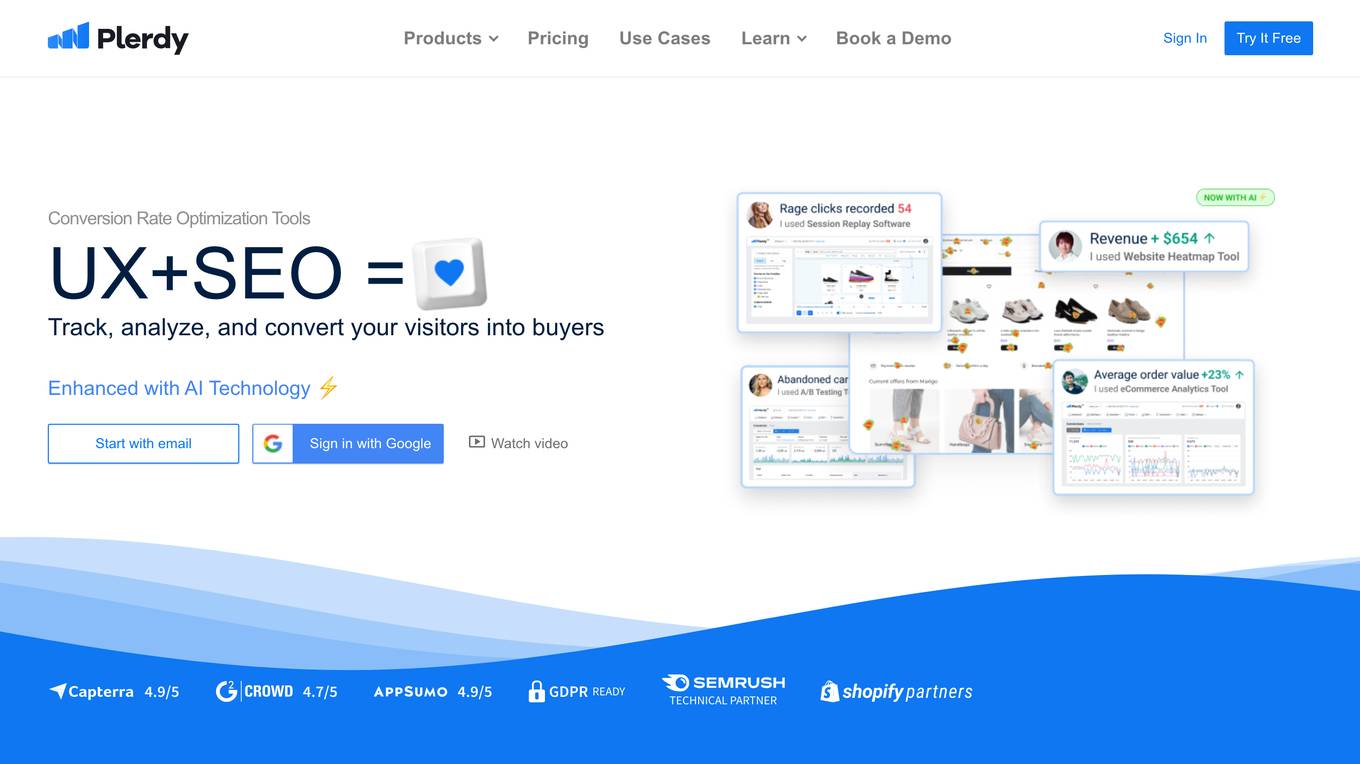
Plerdy
Plerdy is a comprehensive suite of conversion rate optimization tools that helps businesses track, analyze, and convert their website visitors into buyers. With a range of features including website heatmaps, session replay software, pop-up software, website feedback tools, and more, Plerdy provides businesses with the insights they need to improve their website's usability and conversion rates.
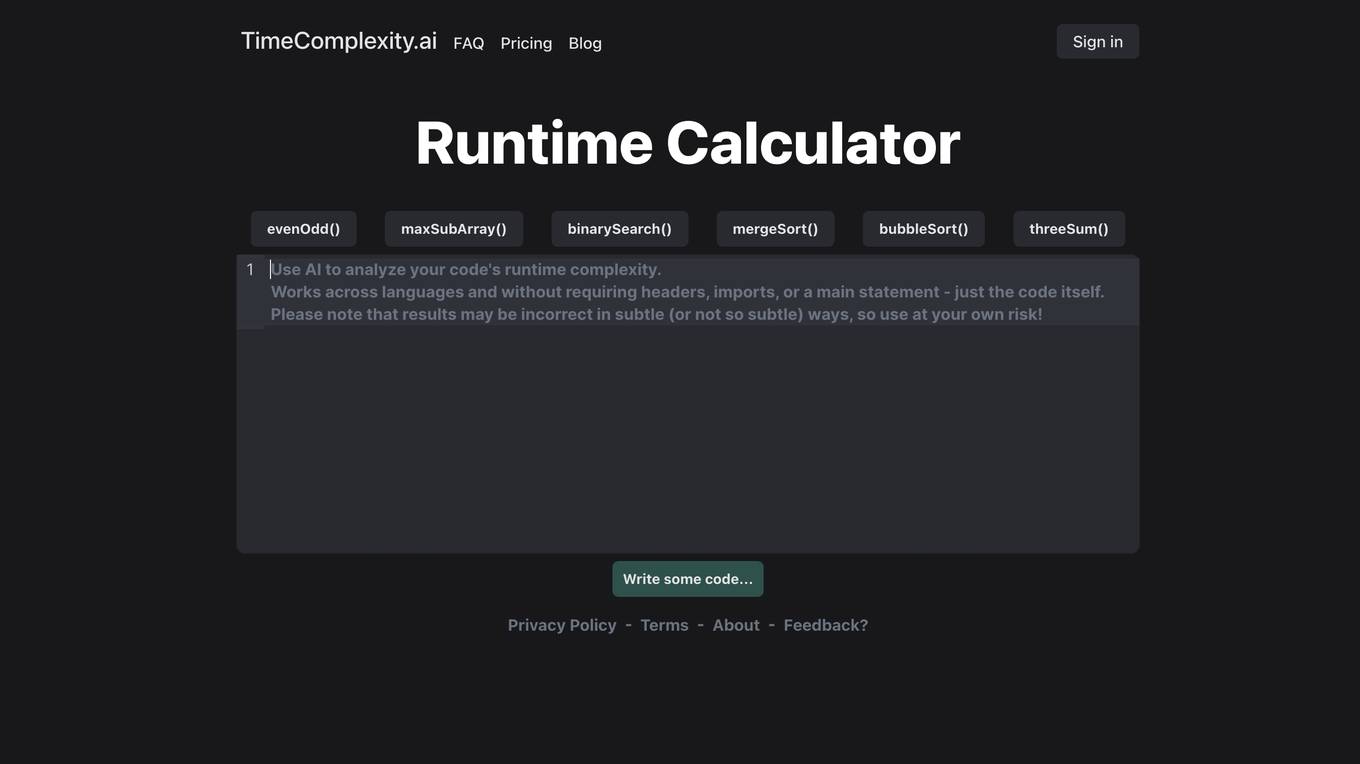
TimeComplexity.ai
TimeComplexity.ai is an AI tool that helps users analyze the runtime complexity of their code. It can be used across different programming languages without the need for headers, imports, or a main statement. Users can input their code and get insights into its time complexity. However, it is important to note that the results may not always be accurate, so caution is advised when using the tool.
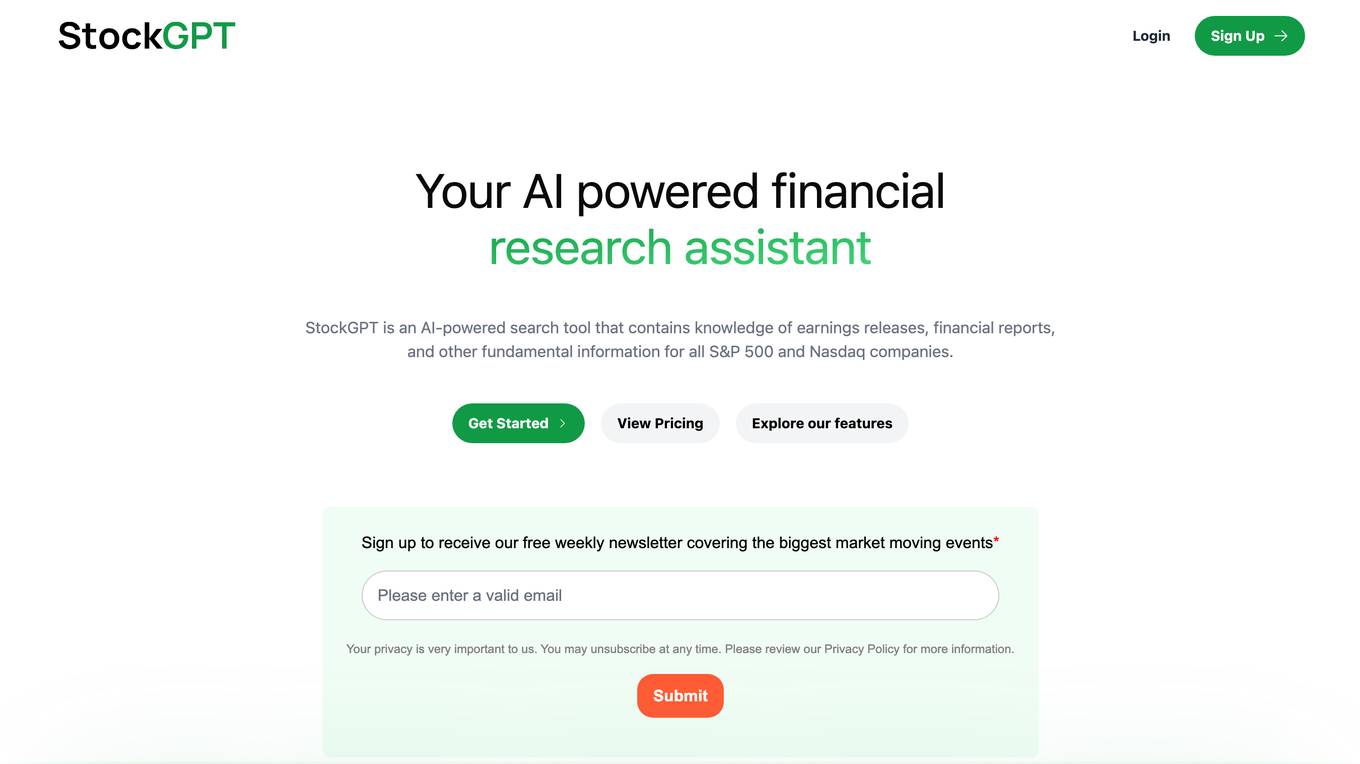
StockGPT
StockGPT is an AI-powered financial research assistant that provides knowledge of earnings releases, financial reports, and fundamental information for S&P 500 and Nasdaq companies. It offers features like AI search, customizable filters, up-to-date data, and industry research to help users analyze companies and markets more efficiently.
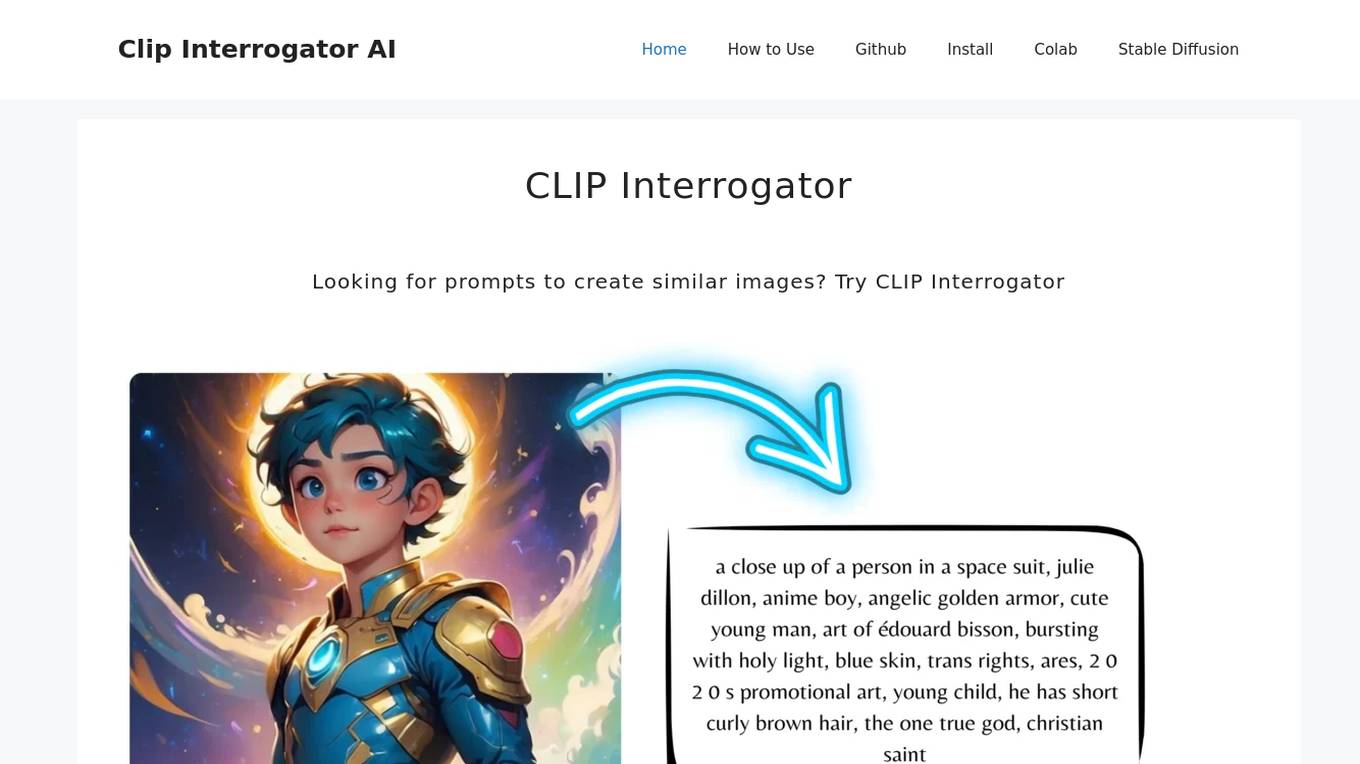
CLIP Interrogator
CLIP Interrogator is a tool that uses the CLIP (Contrastive Language–Image Pre-training) model to analyze images and generate descriptive text or tags. It effectively bridges the gap between visual content and language by interpreting the contents of images through natural language descriptions. The tool is particularly useful for understanding or replicating the style and content of existing images, as it helps in identifying key elements and suggesting prompts for creating similar imagery.
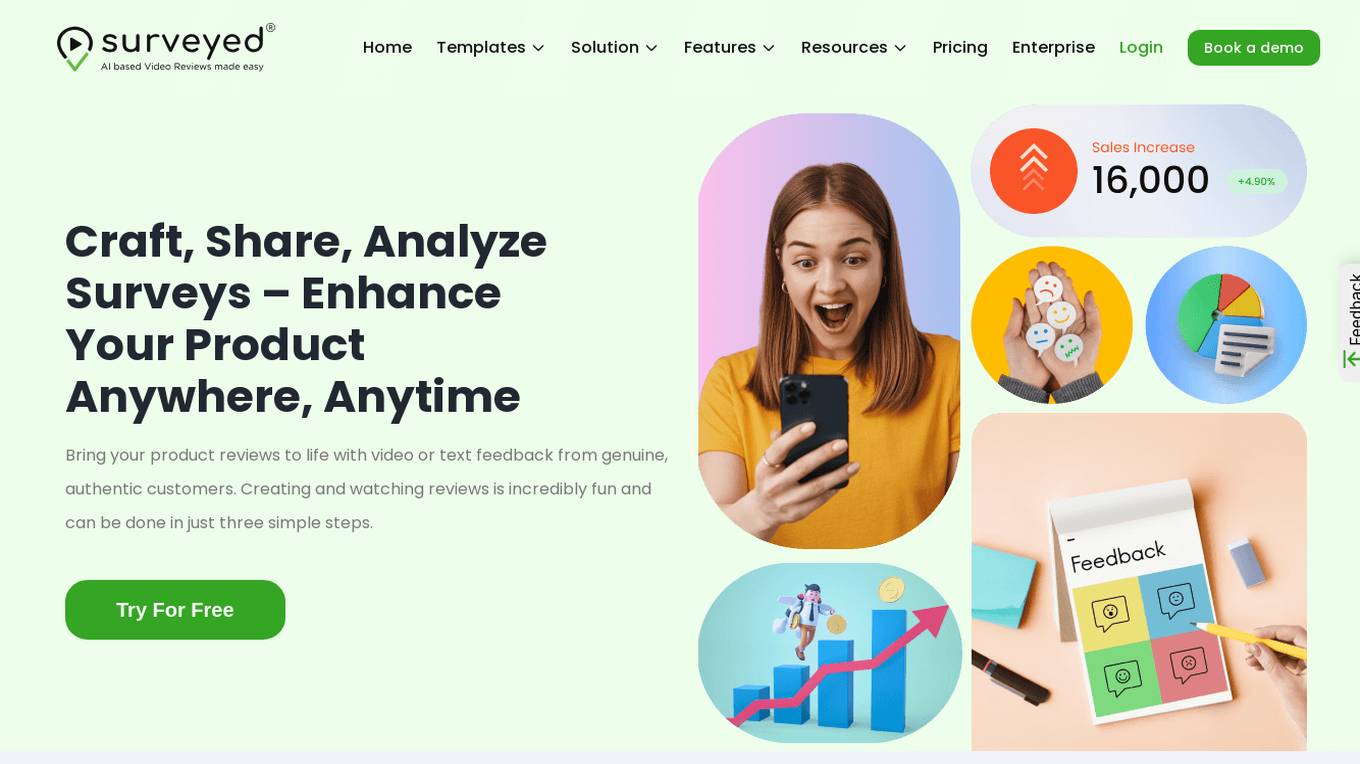
Surveyed.live
Surveyed.live is an AI-powered video survey platform that allows businesses to collect feedback and insights from customers through customizable survey templates. The platform offers features such as video surveys, AI touch response, comprehensible dashboard, Chrome extension, actionable insights, integration, predefined library, appealing survey creation, customer experience statistics, and more. Surveyed.live helps businesses enhance customer satisfaction, improve decision-making, and drive business growth by leveraging AI technology for video reviews and surveys. The platform caters to various industries including hospitality, healthcare, education, customer service, delivery services, and more, providing a versatile solution for optimizing customer relationships and improving overall business performance.
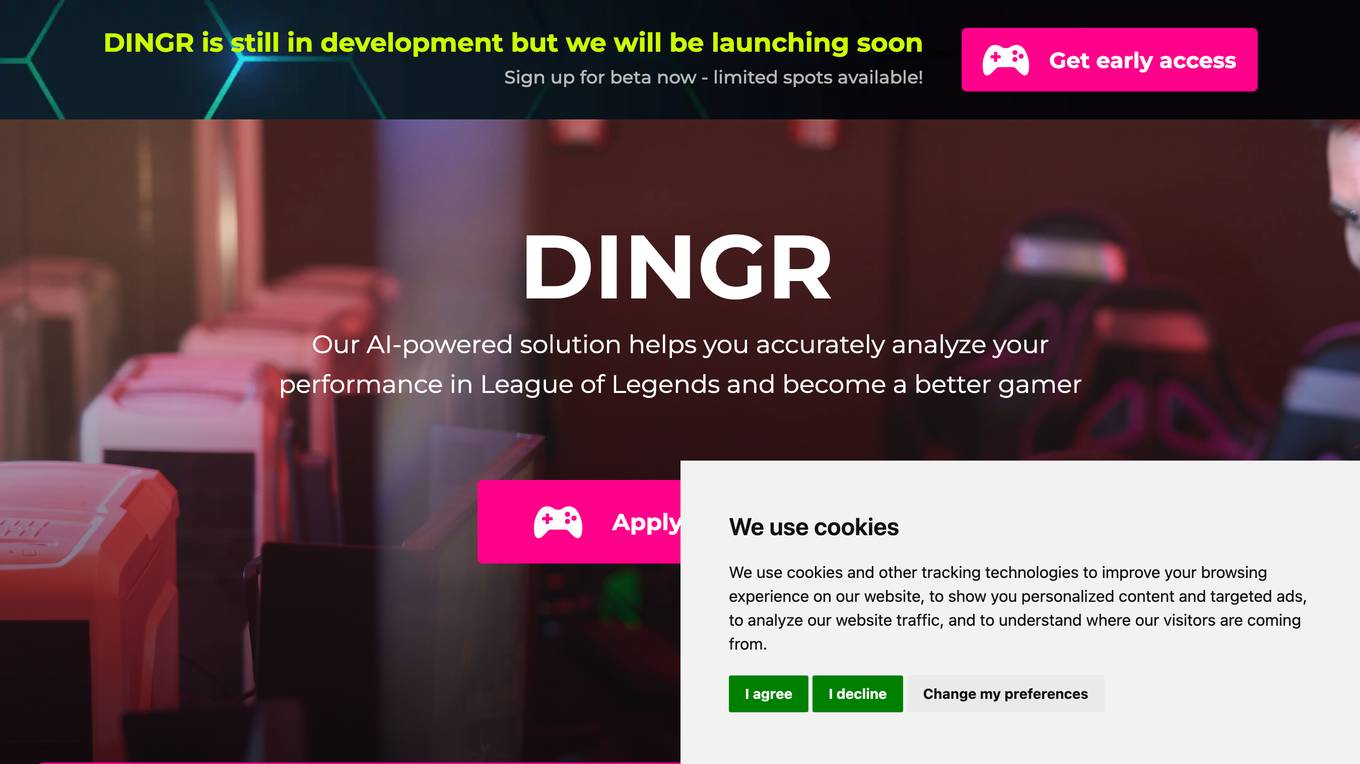
DINGR
DINGR is an AI-powered solution designed to help gamers analyze their performance in League of Legends. The tool uses AI algorithms to provide accurate insights into gameplay, comparing performance metrics with friends and offering suggestions for improvement. DINGR is currently in development, with a focus on enhancing the gaming experience through data-driven analysis and personalized feedback.
0 - Open Source AI Tools
20 - OpenAI Gpts
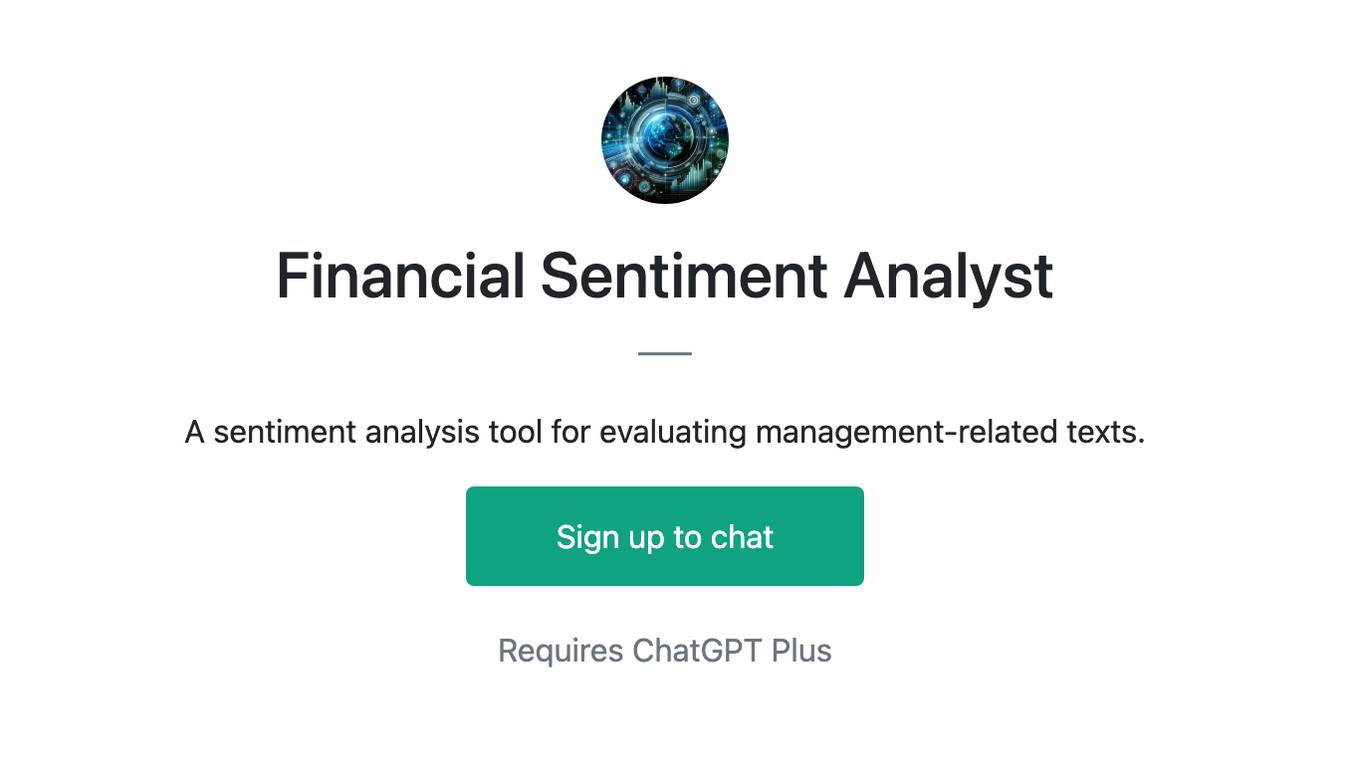
Financial Sentiment Analyst
A sentiment analysis tool for evaluating management-related texts.
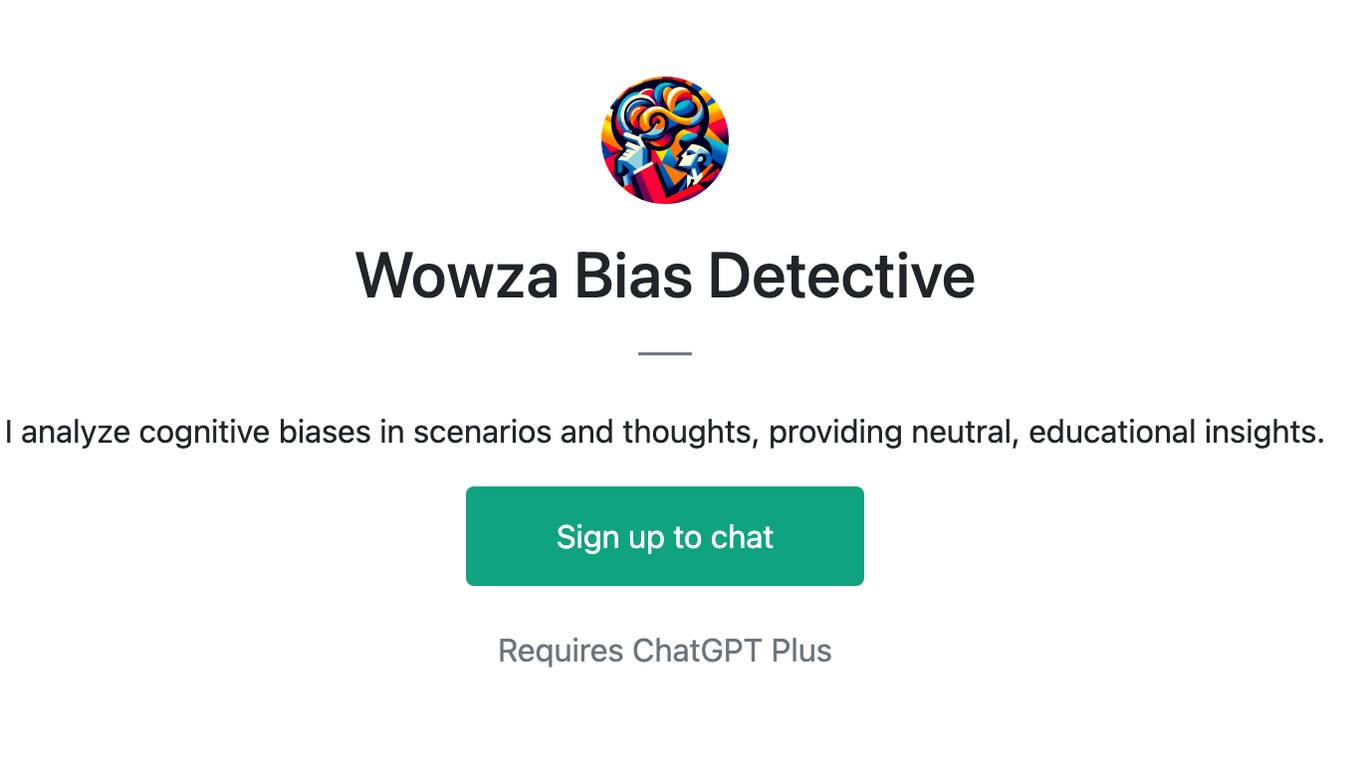
Wowza Bias Detective
I analyze cognitive biases in scenarios and thoughts, providing neutral, educational insights.
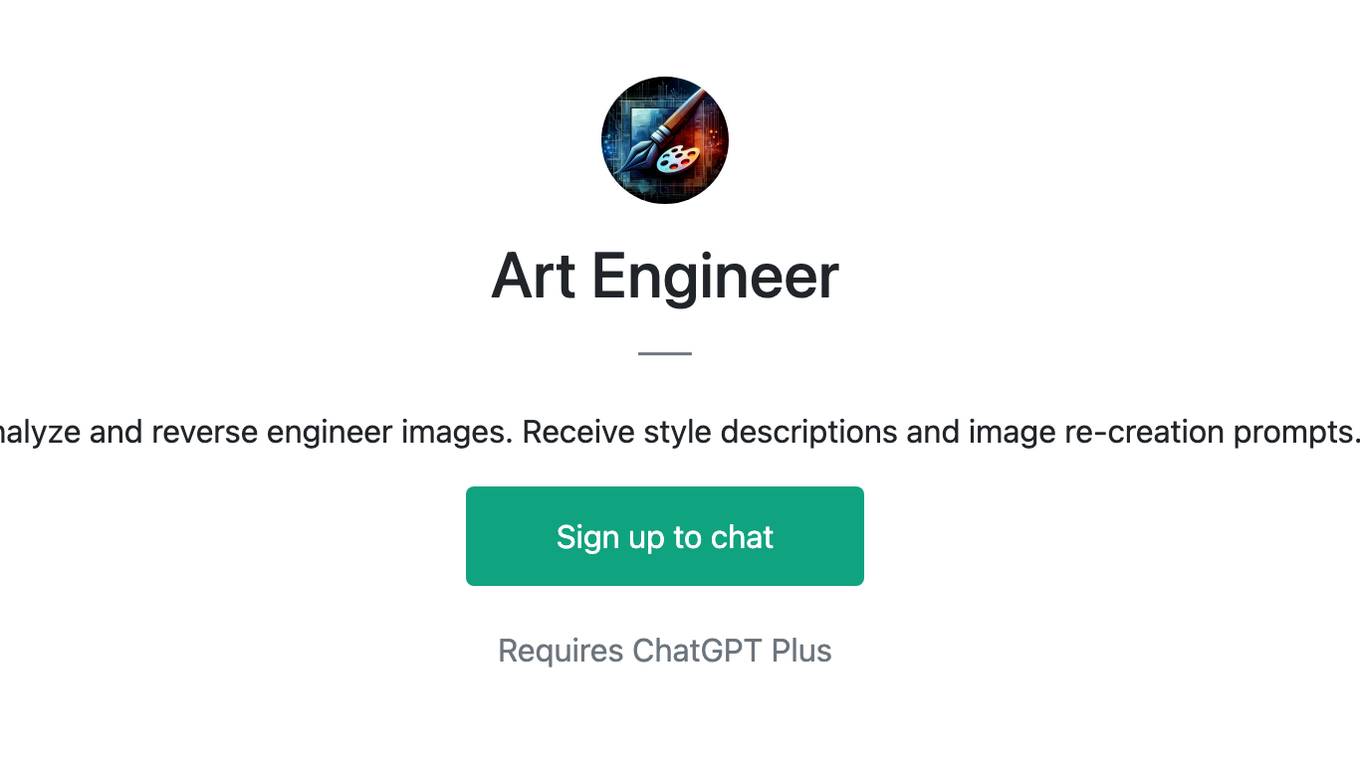
Art Engineer
Analyze and reverse engineer images. Receive style descriptions and image re-creation prompts.

Stock Market Analyst
I read and analyze annual reports of companies. Just upload the annual report PDF and start asking me questions!

Good Design Advisor
As a Good Design Advisor, I provide consultation and advice on design topics and analyze designs that are provided through documents or links. I can also generate visual representations myself to illustrate design concepts.
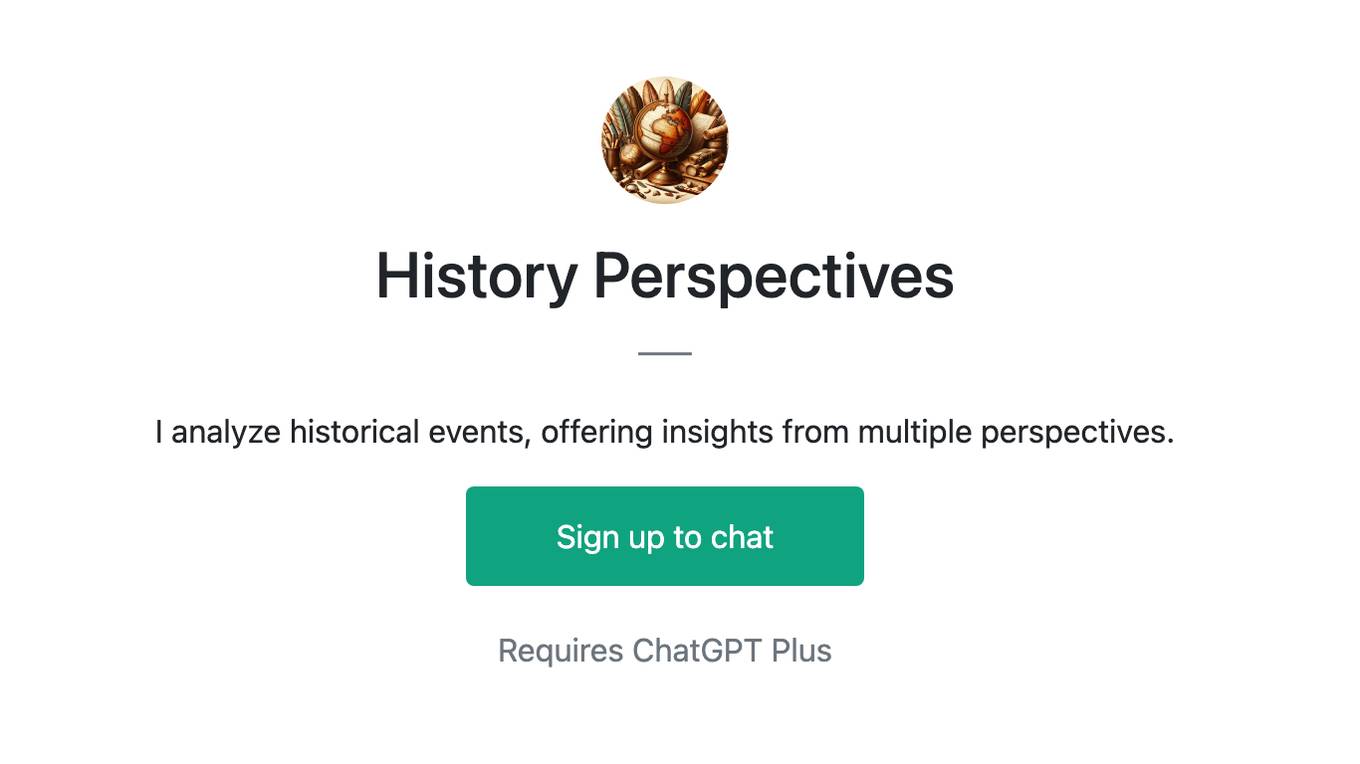
History Perspectives
I analyze historical events, offering insights from multiple perspectives.
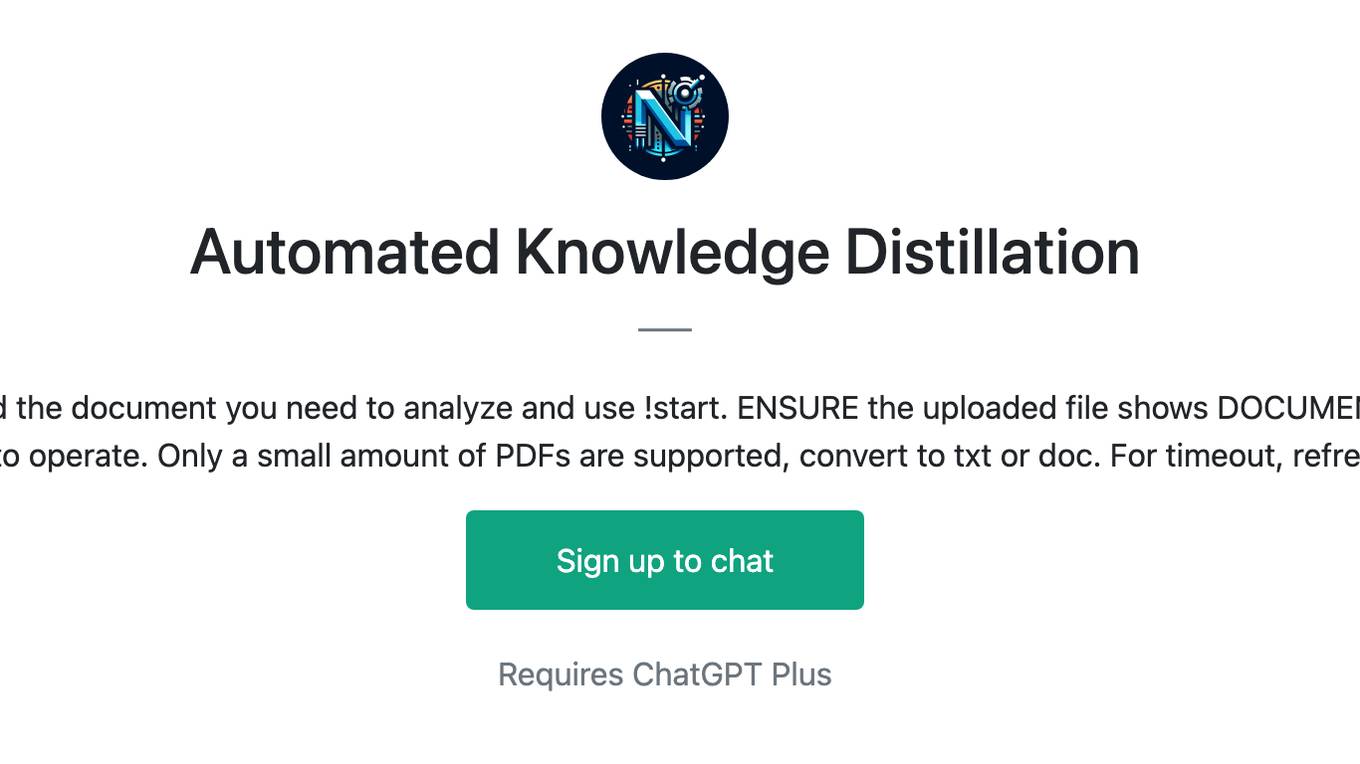
Automated Knowledge Distillation
For strategic knowledge distillation, upload the document you need to analyze and use !start. ENSURE the uploaded file shows DOCUMENT and NOT PDF. This workflow requires leveraging RAG to operate. Only a small amount of PDFs are supported, convert to txt or doc. For timeout, refresh & !continue

Art Enthusiast
Analyze any uploaded art piece, providing thoughtful insight on the history of the piece and its maker. Replicate art pieces in new styles generated by the user. Be an overall expert in art and help users navigate the art scene. Inform them of different types of art

